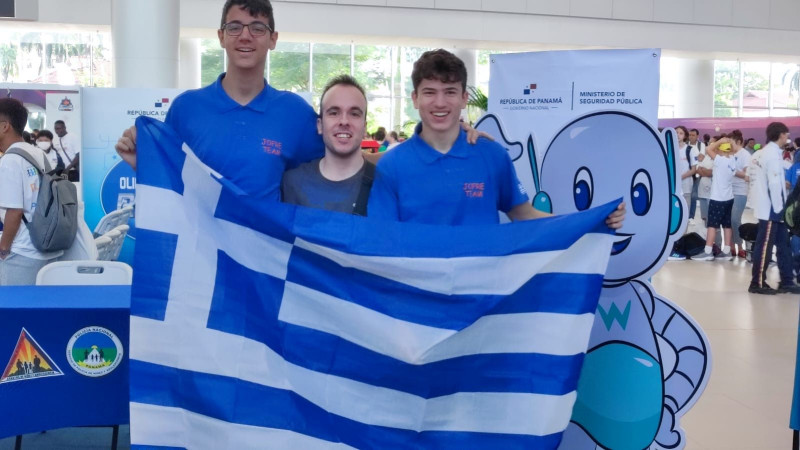The teams of the Greek delegation won 2 bronze medals as well as 2 distinctions in fourth and eighth place
The 1st place in Europe and 4th place in the world among 451 teams from 90 countries was received by the Greek delegation in the final of the World Robot Olympiad 2023, held in Panama, with the theme “Connecting the world”.
The teams of the Greek delegation won 2 bronze medals as well as 2 distinctions in fourth and eighth place in one of the most important international robotics competitions. In total to date, Greece has won 9 medals and 20 distinctions in the top ten winners at the World Robotics Olympiad.
The president of WRO Hellas, the Educational Robotics & Science Organization STEM Education, the main organizer of educational robotics competitions in Greece and a member of WRO, Yannis Somalakidis said after the Robotics Olympiad: “Greece has managed to win a total of 9 medals in the longest Olympiad Robotics. I will not forget the moment when in Hungary, in 2019, we had the largest harvest of medals and today we reached to be the 1st European and 4th world power in the Robotics Olympiad. It is worth reminding that the teams that take part in the Olympiad have taken first place in the pan-Hellenic competition. Congratulations to all the children, to the coaches who give their best, and to their families who support them. See you next year at the next Robotics Olympiad, which will be held in neighboring Smyrna.”
World Robotics Olympiad 2023 standings, medals and awards
The seven teams of the Greek mission, Minders, Smartbirds, BitLab, Teamword Happines, Save Energy, JoFre and Evripos Robotics, managed to take the first place among the European countries and the fourth place in the world ranking, based on the total score they collected.
In particular, 2 bronze medals were received by the BitLab teams in the RoboSport category, i.e. in doubles tennis with robots, having lost only one match, and the Minders team in the Future Innovators High School category with the Aquabyte project. The specific project concerns autonomous server rooms that are submerged at a great depth in the sea in order to utilize the natural properties of the seabed and more specifically the low temperature. In the event that the server room detects a malfunction (through sensors), it transfers the data to another server and emerges.
The 4th place in the High School Future Innovators category went to the Smartbirds team with the project Hermes. It is a robotic system called “Mercury”, which can intervene immediately in the event of an undersea telecommunications cable failure and fully restore the operation of the network.
Also, in the 8th place was the JoFre team in the High School RoboMission category.
Source :Skai
I am Terrance Carlson, author at News Bulletin 247. I mostly cover technology news and I have been working in this field for a long time. I have a lot of experience and I am highly knowledgeable in this area. I am a very reliable source of information and I always make sure to provide accurate news to my readers.











